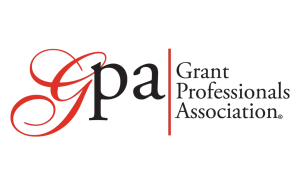A Senate bill seeks to improve the effectiveness of federal grant and cooperative agreement programs. If passed, the bill would simplify application and reporting requirements, improve delivery of service to the public, and facilitate improved coordination among federal granting agencies.
The bill was introduced by John Cornyn (R-Texas), James Lankford (R-Oklahoma) and Gary Peters (D-Michigan) and has been referred to the Senate Homeland Security and Government Affairs Committee.
Under the terms of The Streamlining Federal Grants Act of 2023 (S. 2286) (https://bit.ly/3Y1w49y) the federal government would establish a grants council comprised of representatives from all grant-making federal agencies. The council would be charged with reforming current complex and outdated funding practices, such as administrative, application and reporting procedures.
The new bill builds on 2019’s Grant Reporting Efficiency and Agreements Transparency (GREAT) Act, which required the Office of Management and Budget and administrators of grant programs to streamline data transparency requirements for grant recipients. Senators Lankford and Peters were among the sponsors of the GREAT Act.
If enacted, the bill is intended to:
- Overcome current bureaucratic obstructions and confusion in the federal grant administration process, especially those created by the Office of Management and Budget’s 2014 Uniform Guidance on federal grants;
- Require that non-federal entities, including nonprofits, institutions of higher learning, Indian tribes and local and state governments have a regular and ongoing part of the consultative process of each agency’s streamlining efforts, starting early in the streamlining process. Agencies would be required to give special attention to entities that have not traditionally received grants;
- Mandate designating a senior agency official responsible for all aspects of grant policy, management, planning and implementation;
- Establish a Grants Council under the supervision of the Director of the Office of Management and Budget; and,
- Simplify application, administrative and reporting processes by requiring funding notifications use plain language, list availability of, and contact information for, training and assistance relating to applying for, administering and reporting on grants, and provide summaries of the funding opportunities that do not exceed 500 words in length.
“[T]he huge federal bureaucratic maze continues to make the grant process difficult to navigate, Lankford said in a statement. “Our bill clearly designates an existing employee at each agency to serve on an interagency grants council, serve as the public contact for grants, and help implement the standards of my GREAT Act. Each agency has its own grants process, but the public-facing side of grants should be as simple and straightforward as possible.”
“Complicated and outdated processes to apply for federal grants often result in underserved communities missing out on opportunities to receive critical funding,” Peters said in a statement. “This bipartisan legislation will help modernize this process and make sure every community … across the nation has an equal opportunity to receive federal funding.”
If passed, the bill will provide changes to the grant-making process for nonprofits and other concerns. “The federal government relies heavily on charitable nonprofits to perform services in every community across the United States. Yet the federal grants process is needlessly complex, exclusionary, and a reason the current nonprofit workforce shortage crisis is so severe,” National Council of Nonprofits President and CEO Tim Delaney said via a statement. “The networks of the National Council of Nonprofits strongly support the Streamlining Federal Grants Act as a needed step in de-complexifying federal grant making and providing clarity and fairness that will benefit all Americans.”








